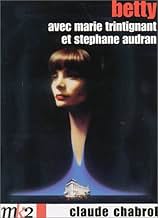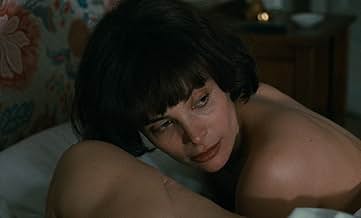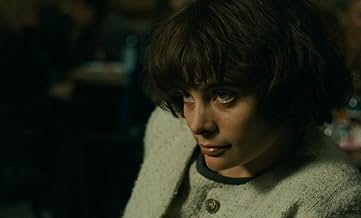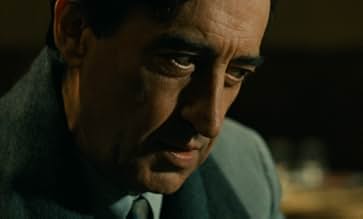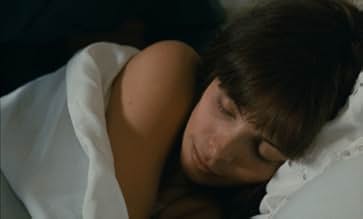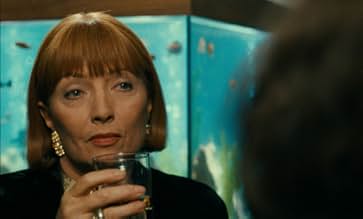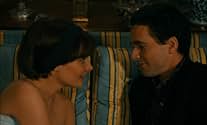Betty is hard to understand. Not a victim, yet not a manipulator. She suffers, yet she destroys what's around her for petty motives, or not even that.
Cinematography is part of the story. Like at Berri's "Tchao pantin" (1983), Bernard Zitzermann's work enhances the story at the right time, and then releases its grip on us. When it pours rain and Betty is carried like merchandise from one tramp to another, you feel wet and desolate. The song "Je voulais te dire que je t'attends" is very effective too, I felt bad just by comparing the moving lyrics with what we were seeing, the road to nowhere.
Simenon is a love/ hate affair, I find it hard to be objective with him. I can't speak about his novels, but I can't say I like watching his cinema adaptations, they make me feel bad about everything in life after having watched them. And yet, I though they well made, atmospheric, immersing, in a sort of "descent to hell" way. I mean, it's like reading Dostoievsky but less melodramatic, and with way more sex & the facade of love as subjects.
This is a film about women. Marie Trintignat of course IS this movie. Frail, elegant, beautiful, but enigmatic, always following her own ways, in her private world where no one reaches her, it's hard to love her if one sees her objectively, but is nevertheless an alluring character. Reading her bio on IMDb is heavily interesting, it's like Claude C understood her personality, almost her "destiny", encapsulated it and gave it to us on celluloid, thus, making it last sort of forever.
Laure, on the contrary, while no angel, maybe sees in Betty some sort of projection of herself, some "lost soul to be saved", or in any case, she mothers Betty, in a non dominating way, firm when she has to, almost too perfect to be real.
Mario and Guy Etamble are characters devoid of soul, will or personality. Guy of course is dominated by the family, even when they made her sign the legal contract, it's "them", not him. Even the sister in law is there :)! So when they have to decide "what to do with her", it's a family affair, in which Guy is only one of the voices. And of course there Madame Etamble seems to be the only dominating force. Again, women are the only source of plot in this story.
A very "French" film in the use of a convoluted plot, frequent flashbacks, "originary scenes" all the time (torrid sex scenes unintended to be seen, but of course finally obvious, unless you think there is always a motif for everything, so ... :)). Psychoanalysis is a commanding force, "manifestly" in the mouth of one of Betty's lovers, the intellectual, spectacled Freud follower, but "latently" in all of this oeuvre.
dbdumonteil's review has probably the best quote on this film, by Marie T., you better read it from his review proper.
Chabrol loves to hate the bourgeoisie, so it's no news they look silly and dumb here. The "bourgeois wealth, rigid roles, invisible servants, funless family in short". Chabrol would probably put the blame of most on them, but we don't have to. Nothing new by now, no big deal, Claude :).
This is a cautionary tale in many ways, but of course you'll have to watch this movie to find out why.
PS: The storyline review by "jhailey@hotmail.com" has spoilers, can't anybody do something about it?

